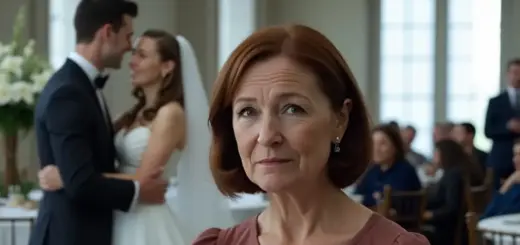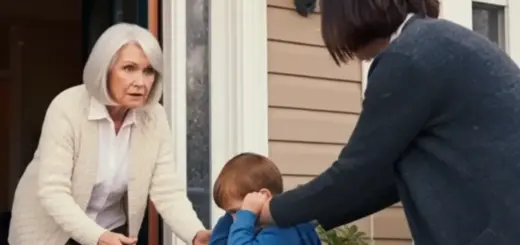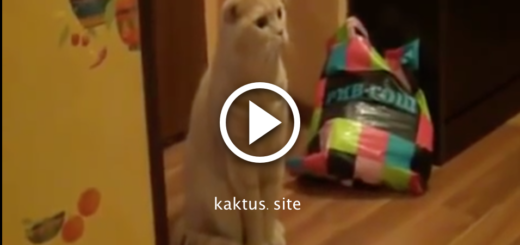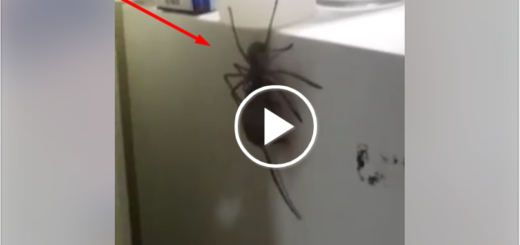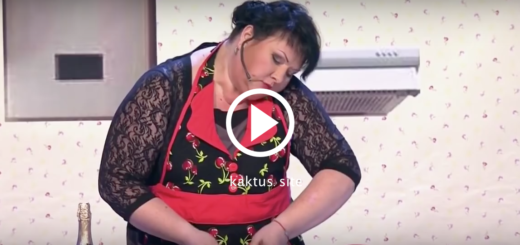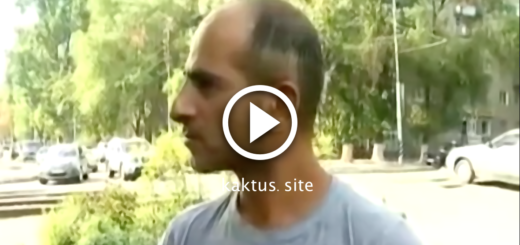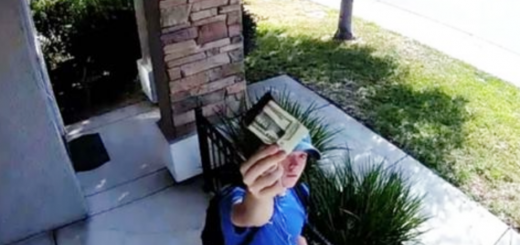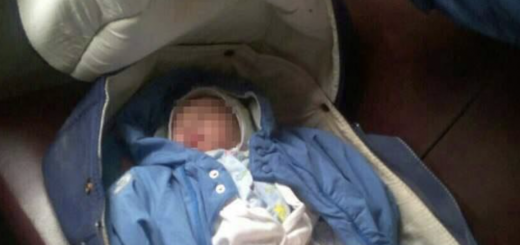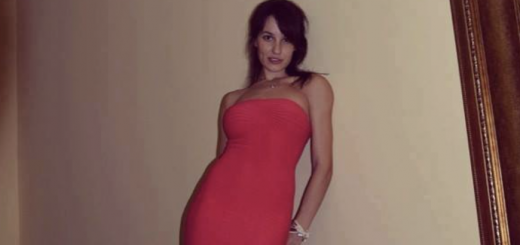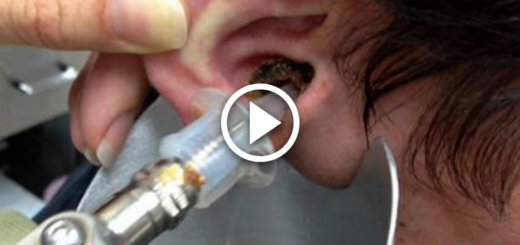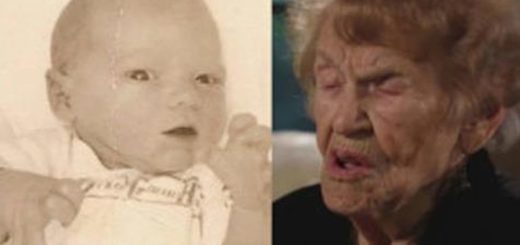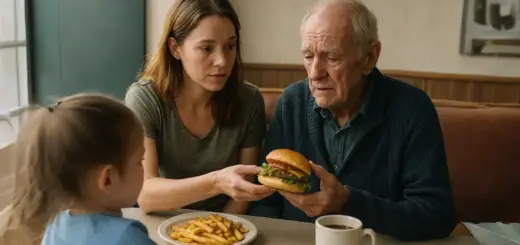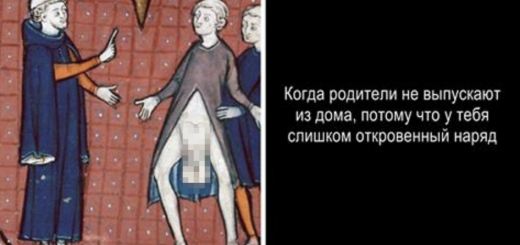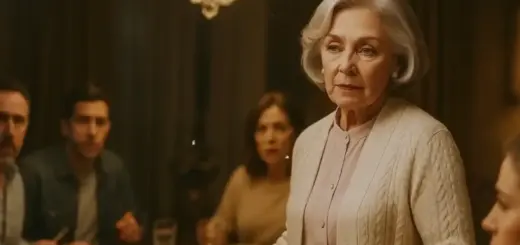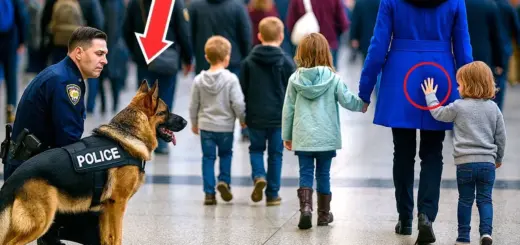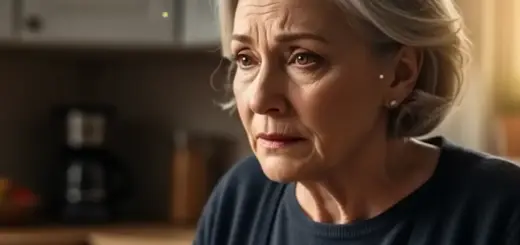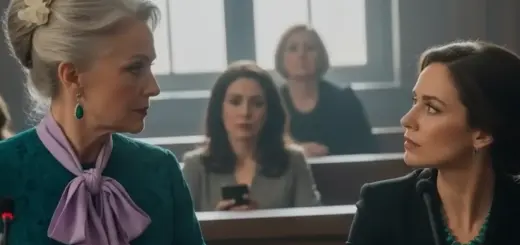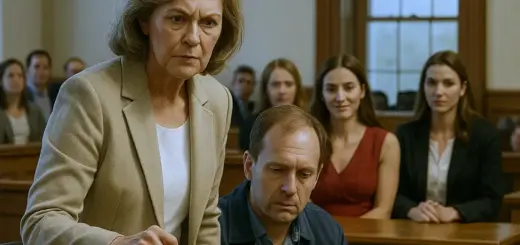Have you ever found yourself in a room full of family, surrounded by the familiar clinking of silverware and the low hum of conversation, yet feeling utterly alone? It’s a strange sort of quiet, isn’t it? The kind that settles in your bones even when there’s laughter all around you.
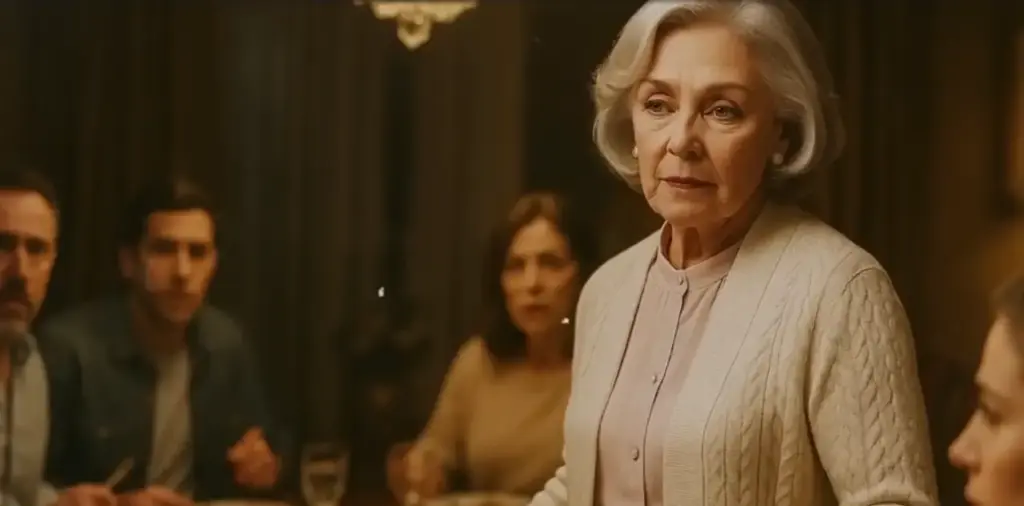
That was where my story truly began, at a Sunday dinner that felt just like any other, until it wasn’t. The air was thick with the scent of roasted chicken and the polite, practiced joy that so often filled these gatherings.
I was seated at my usual spot near the end of the table, a place that had become my comfortable perch for observing, for listening, for being present but not entirely seen. My plate was a landscape of half-eaten food and unspoken thoughts. I’d nod and smile, a quiet participant in a play I’d been acting in for years.
It was Iris, my daughter-in-law, whose voice sliced through the gentle murmur. She had a way about her, a polished confidence that could be both dazzling and sharp. «So, Lenore,» she began, her voice smooth as the wine she swirled in her glass.
«How does it feel being useless?» The word hung in the air, a deliberate, cruel ornament. She smiled then, a wide, bright smile that sought and found its intended audience. My son Caden let out a low chuckle.
His sister-in-law gave a startled little laugh before her eyes darted guiltily toward me. Even my grandson, a boy I’d bounced on my knee, offered a fleeting smirk before looking away. For a long moment, I said nothing.
The world seemed to slow down, the sounds of the room fading into a distant buzz. I carefully placed my water glass back on the table, my hand steady, a small island of calm in a sudden storm. I looked at Iris, truly looked at her, perhaps for the first time that day.
She wore a pair of expensive sunglasses perched on her head like a tiara, and a linen blouse I recognized. I’d paid for it, of course, a silent gift she’d accepted as her due. Her face was a mask of practiced charm, her confidence a fortress.
I straightened my spine, a small, internal shift that no one else would have noticed, and when I spoke, my voice was quiet, almost a whisper in the sudden hush. «How does it feel?» I repeated her question, letting it settle between us. Then, with a calm I didn’t know I possessed, I added, «knowing this useless one won’t be paying your bills anymore.»
The silence that followed was absolute. It was as if all the air had been vacuumed from the room. Iris’s perfect smile faltered, her eyes blinking in disbelief.
Caden’s fork, laden with mashed potatoes, froze halfway to his mouth. This time no one laughed. My words, though spoken softly, had the weight of years behind them.
I didn’t need to raise my voice. The truth was loud enough. Slowly, deliberately, I pushed my chair back, the sound of its legs scraping against the hardwood floor a final, definitive note.
I took my purse from the back of the chair, gave a single, encompassing nod to the stunned faces around the table, and walked through the patio doors into the afternoon sun. As I stepped outside, the light felt like a warm embrace, a welcome from an old friend. And for the first time in what felt like a lifetime, I breathed out a long, slow exhale of burdens I hadn’t even realized I was carrying.
Behind me, the family I had held together for so long was suspended in a moment of stunned silence. But for me, something had finally, irrevocably, unlocked. And I knew exactly where I was going.
My quiet house, my little office, and a locked drawer that held the story of my silence were all waiting for me. It’s funny how the biggest changes in our lives often start with the smallest of things, isn’t it? For me, it began with a late mortgage payment. I remember the phone call as if it were yesterday.
Caden’s voice was low, laced with an embarrassment that was almost palpable through the receiver. Iris had overspent again. The little boutique she was so proud of wasn’t doing as well as they had hoped.
They were falling behind, and the bank was starting to send those letters, the kind with the bold, urgent print that makes your heart sink. Without a moment’s hesitation, I wired them the money that very night, $4,200. I didn’t ask any questions, and I certainly didn’t pass any judgment.
In my heart, I was just helping them catch their breath. We all stumble sometimes, don’t we? We all need a little grace. They never mentioned it again.
There was no thank you, no acknowledgment of the weight I had lifted from their shoulders. But a month later, there was something else. The rent on the boutique’s space had gone up.
Then, it was a credit card bill that Iris had, in her words, «completely forgotten about,» while planning a lavish birthday party for a friend. Then came the deposit for my grandson’s private school, a sum that was, of course, due immediately. Each request was delivered with a quiet urgency, a silent expectation that I would, as always, make it right.
I started keeping a record. At first, it was just a habit, the accountant in me finding comfort in order and numbers. I opened a spreadsheet on my computer, hidden away in a password-protected folder.
I logged the dates, the amounts, and the reasons they gave. I even made a column for the receipts I’d requested but never received. The total grew at a pace that surprised even me.
I never showed it to them, and they never asked. «Dependable» had become my unspoken title, not mother or Lenore, but the one who quietly kept everything from falling apart. In the beginning, I told myself it was love.
Then I reasoned it was my duty as a mother. But after a while, I stopped trying to name it at all. It just was.
I remember one evening, about a year into this new arrangement, Iris kissed my cheek after a lovely dinner I had paid for. «I don’t know what we’d do without you,» she’d whispered. Her words meant not as a compliment, but as a quiet, chilling reminder of my role.
It was after that night that I started printing everything out. The bank statements. The wire transfer confirmations.
Every piece of paper that told the story of my silent contributions. Now, standing in the comforting quiet of my own home, I walked into my office. The bottom drawer of my filing cabinet opened with a familiar groan, and I pulled out the folder.
The papers inside felt heavy, not just with their physical weight, but with the weight of all the things left unsaid. For years, I had dreamed of a small cabin near Lake Lure. I used to drive by it on weekends, a charming little place with white shutters and a screened-in porch, nestled among a grove of pine trees.
It wasn’t anything grand, just a little slice of peace, a place where I could wake up to the sound of birds and sip my coffee by the water. I had been saving for it for nearly five years, my own secret dream tucked away like a pressed flower in a book. The down payment was almost ready when Iris called with what she called «a vision.»
The boutique, she explained, could expand if I helped. She used words like «legacy» and «family investment,» words that were designed to tug at a mother’s heartstrings. Caden chimed in, his voice full of a hope that I had funded.
«We’re so close, Mom,» he’d said. «This could really change things for us.» It was presented as an opportunity I couldn’t possibly refuse.
So I did what I always did. I cashed out my cabin fund, co-signed the loan, and watched as they added my name to yet another document, my signature a testament to a dream I was once again deferring. They never asked what I was giving up.
I never told them. A year later, an invitation arrived for a painting retreat in Taos. Three weeks of sunshine, oil paints, and quiet contemplation.
My heart leaped at the thought. I almost said yes. But then Caden happened to mention how much braces were costing for my grandson and how their insurance was covering so little of it.
I didn’t even wait for them to ask. I just made the transfer. The brochure for the retreat stayed on my refrigerator for months, its sunny promises slowly curling at the edges, until one day I quietly took it down and threw it away.


